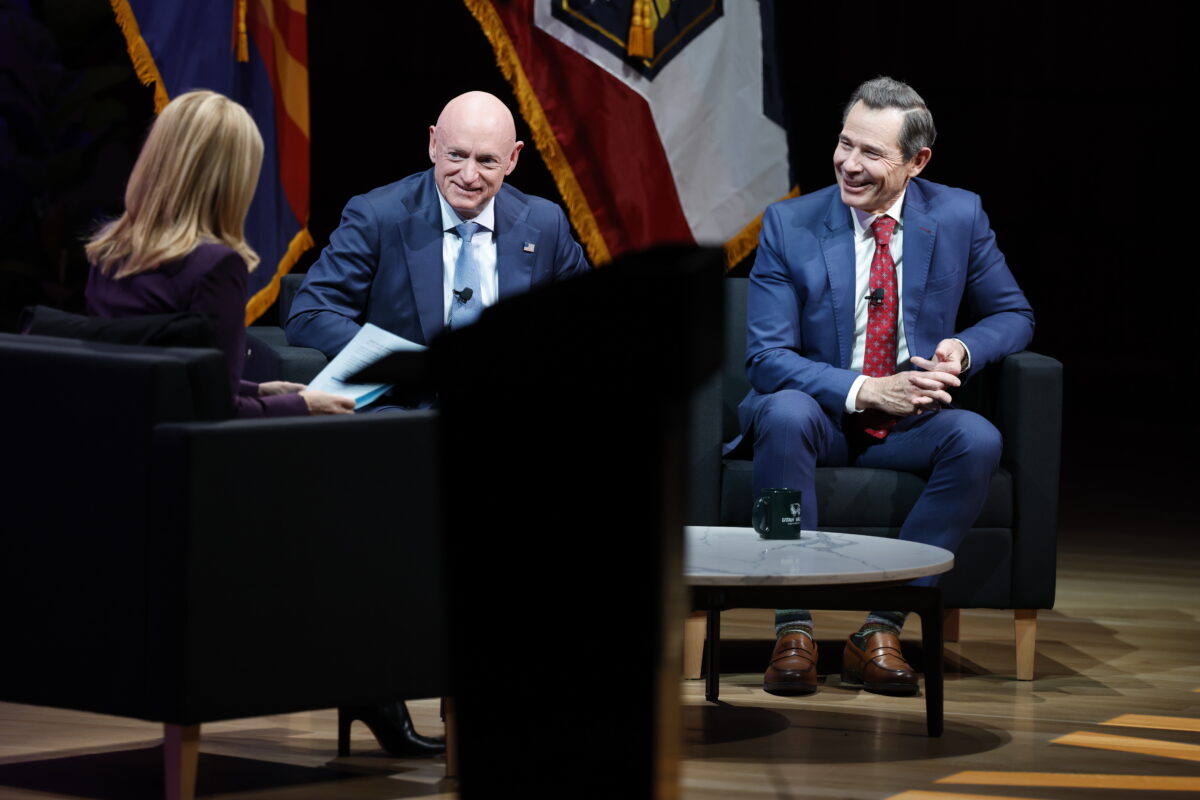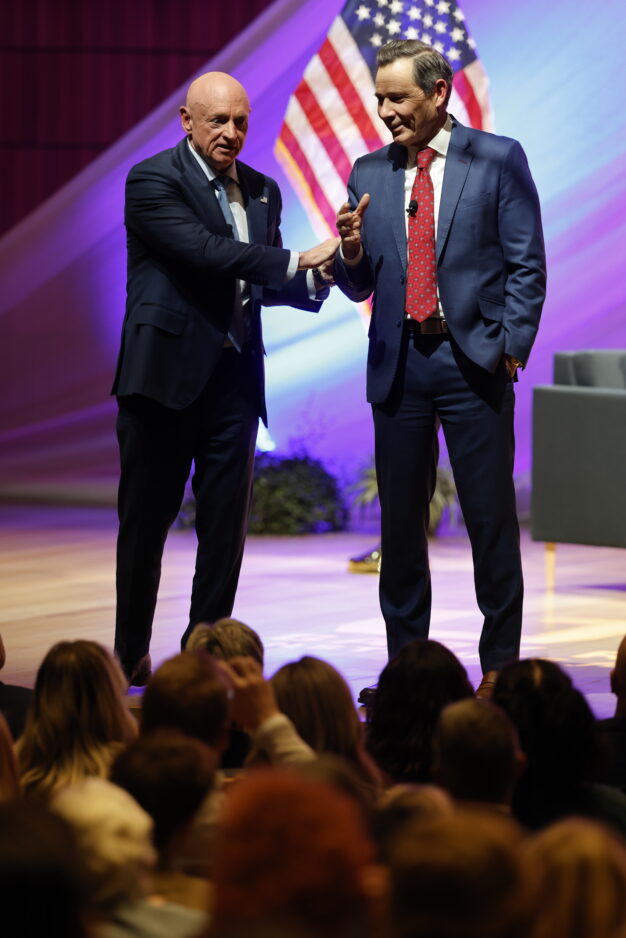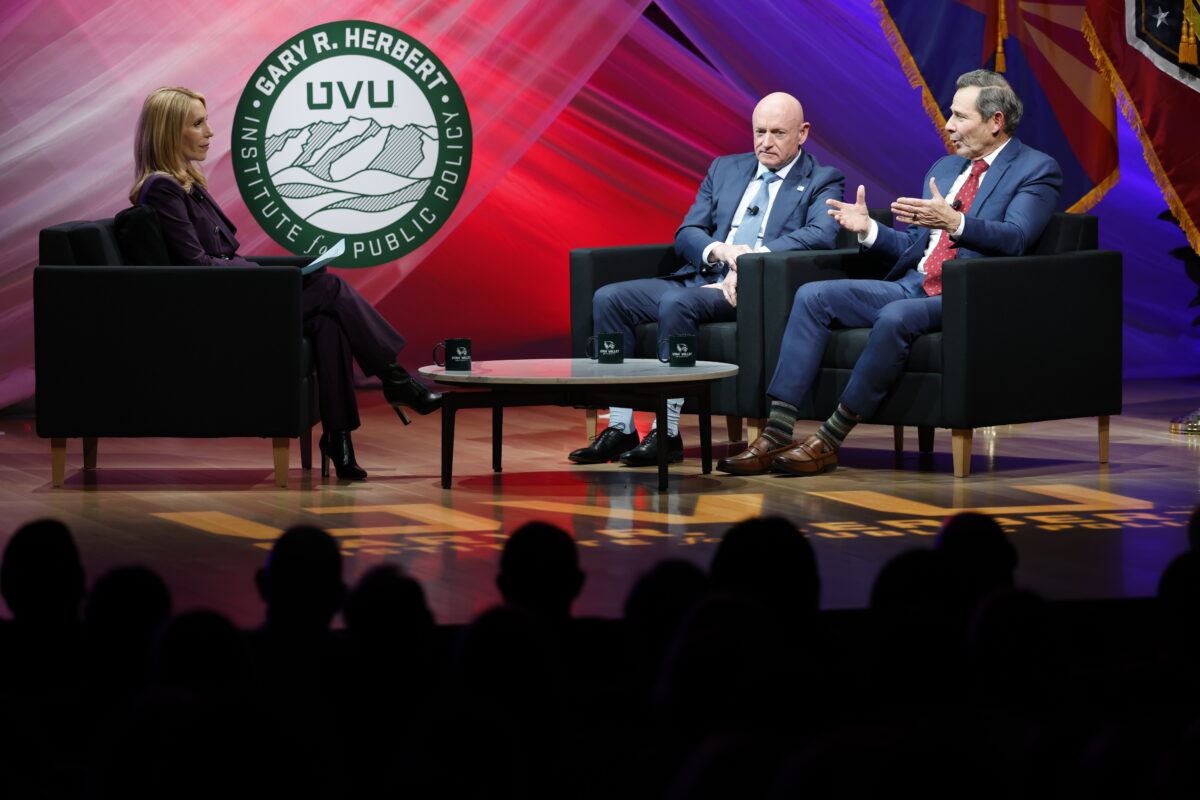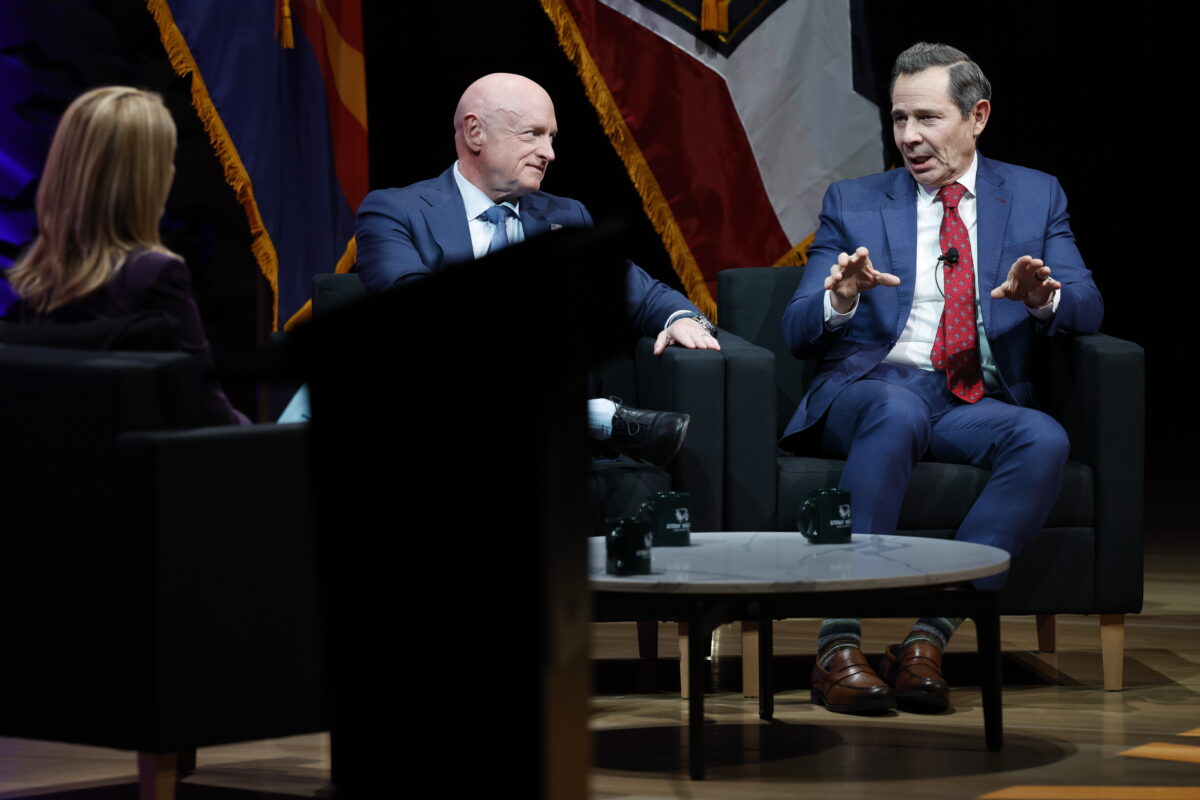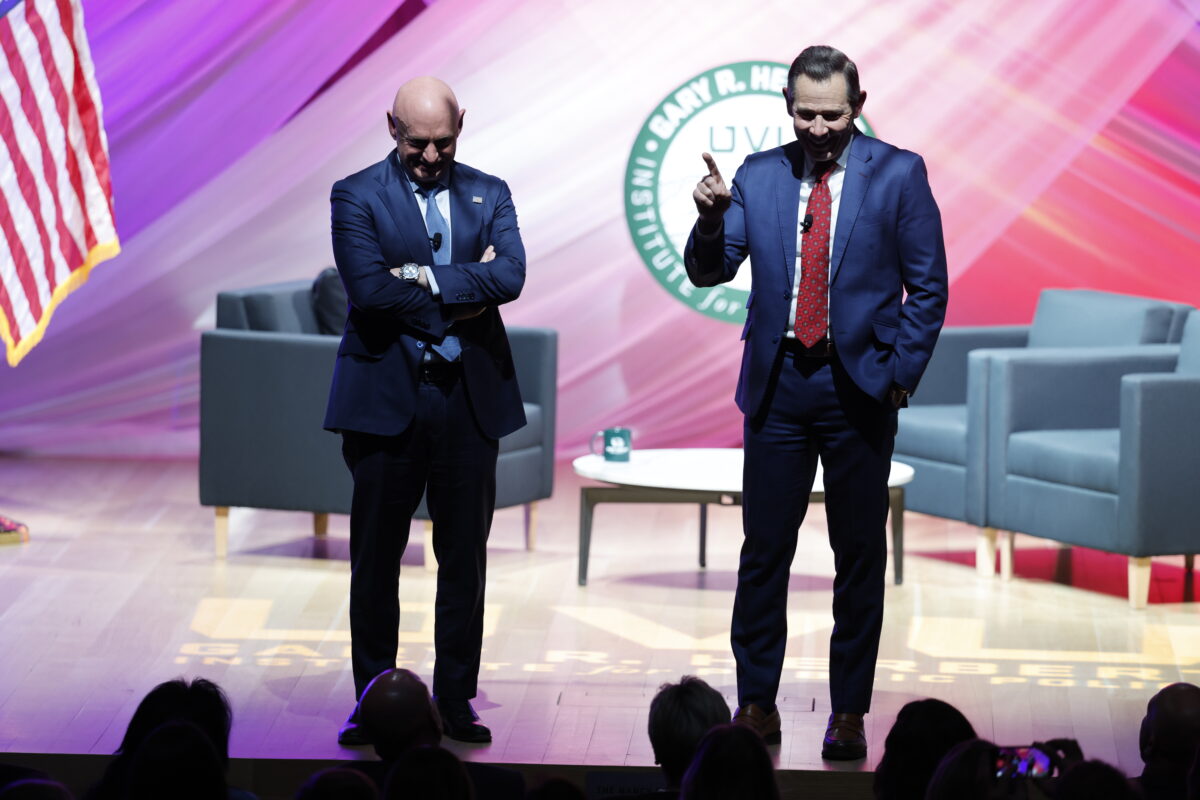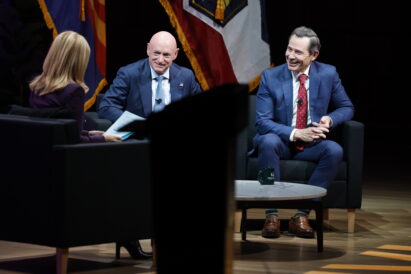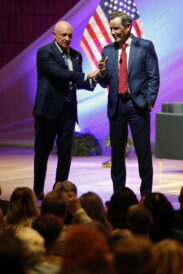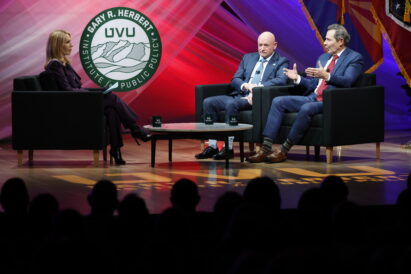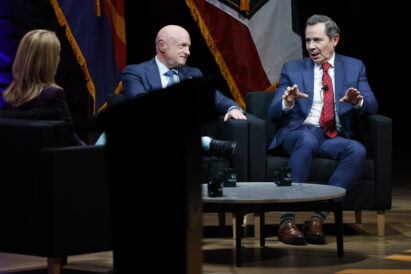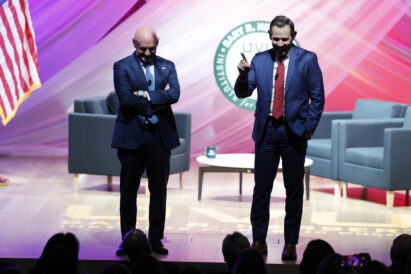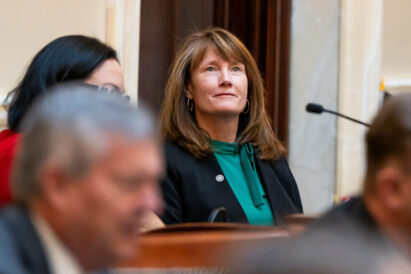A better path forward: Sen. John Curtis and Sen. Mark Kelly discuss how to eliminate political violence at UVU town hall
- Utah Sen. John Curtis and Arizona Sen. Mark Kelly attend a CNN town hall hosted by Dana Bash in the Noorda Concert Center on the Campus of Utah Valley University in Orem on Wednesday, Nov. 12, 2025.
- Utah Sen. John Curtis and Arizona Sen. Mark Kelly attend a CNN town hall hosted by Dana Bash in the Noorda Concert Center on the Campus of Utah Valley University in Orem on Wednesday, Nov. 12, 2025.
- Utah Sen. John Curtis and Arizona Sen. Mark Kelly attend a CNN town hall hosted by Dana Bash in the Noorda Concert Center on the Campus of Utah Valley University in Orem on Wednesday, Nov. 12, 2025.
- Utah Sen. John Curtis and Arizona Sen. Mark Kelly attend a CNN town hall hosted by Dana Bash in the Noorda Concert Center on the Campus of Utah Valley University in Orem on Wednesday, Nov. 12, 2025.
- Utah Sen. John Curtis and Arizona Sen. Mark Kelly attend a CNN town hall hosted by Dana Bash in the Noorda Concert Center on the Campus of Utah Valley University in Orem on Wednesday, Nov. 12, 2025.
Two Senate members from opposing sides of the aisle came together Wednesday at the campus where Charlie Kirk was shot and killed to discuss how to eliminate political violence in the country.
Utah Republican Sen. John Curtis and Arizona Democrat Sen. Mark Kelly answered questions from CNN reporter Dana Bash for an hour inside the Noorda Center for the Performing Arts at Utah Valley University, addressing Kirk’s assassination, detailing social media’s role in the nation’s polarization and promoting civil discourse.
At the event, hosted by The Herbert Institute for Public Policy, Curtis said he felt compelled to participate in something that would help a community in shock over the political violence witnessed on Sept. 10, and that he invited a friend with differing viewpoints to join him.
“We’re here hopefully, to be able to bring not just a little bit of healing to the community, to UVU, which is just an amazing university … but to show that two people from two different parties in two different states actually like each other and can work together even in our disagreements,” Curtis said.
Addressing the shooting
Kirk’s assassination had a personal impact on both senators. For Curtis, the former Provo mayor, the tragedy occurred in his own backyard.
“My first reaction was, ‘Oh no, not here. This could never happen here.’ And I think a lot of Utahns were hoping beyond hope that the shooter came from outside Utah, because we like to believe that the shooter couldn’t come from here, but he did, and our reality now is, if it happened here in Utah, it could happen anywhere.”
For Kelly, who represents the state where Kirk lived, the tragedy struck a more intimate tone, because his wife, former Arizona Rep. Gabby Giffords, was a victim of political violence herself when she was shot in the head at a political event in 2011.
Kelly said his initial reaction to both shootings was similar — he thought they were going to be fine — until learning greater detail of each event. When he learned his wife had been shot in the head, though she survived, Kelly said he knew his family’s lives were going to change forever. When he saw the video of Kirk being shot, his mind went to Kirk’s family.
“I immediately thought about his wife, Erika, and didn’t know if he had children, but later found out that he did, and that she’s going to spend the rest of her life without her husband, these kids without their dad, and it is such a horrific thing to happen to any family, not only to her and her kids, but to his parents and his friends and all those people around him.”
Finding common ground
The personal experiences with the tragedy set the basis for a conversation that attempted to acutely identify how to avoid such events and divisiveness going forward.
Kelly said the first step is to find common ground with one another and that disagreeing does not mean being disagreeable. He said people should be able to have relationships with family members or career associates with differing viewpoints. Kelly referred to his own experience in Washington and said he is friends with many Republican senators.
Curtis agreed with Kelly’s words and challenged individuals to “look in the mirror and commit to being better.” He said families need to do better as well.
As an example of finding common ground, Bash highlighted the topic of gun control and asked the two senators to discuss it.
Curtis steered the conversation to self-inflicted gun shot wounds, which represent the majority of gun-related deaths in Utah.
Kelly suggested a way to reduce suicides is by setting up a red flag law, where people could temporarily prevent a family member from purchasing a firearm.
Curtis said they would need to insert due process right into the conversation, expressing worry that an upset neighbor could take advantage of such a law and prevent someone from purchasing a gun. He suggested an individual can choose to self-select out of the ability to buy a firearm.
“A compromise in the middle would be not have the neighbor, but (only) if you’re a family member,” Kelly responded.
The role of social media
Curtis warned “the odds are stacked against us” in finding civility due to the dangers of social media.
He said social media has morphed from a place where you can see what your friends are up to to a platform designed to keep people glued to their phones through targeted algorithms that use your data that show not what you want to see “but what they want (you) to see,” he said.
“When your kids log on — your 14-year-old daughter logs on — you have the whole power of the computer world and AI trying to show her or our sons something that will aggravate them, that will tease them, that will make them stay on there longer. And those things are not good and they’re not healthy,” he said.
Kelly said that the algorithms are designed to make these media companies more money by keeping you on your phone longer and seeing more advertisements.
To combat the issue, Curtis said they are working on a bill that would hold social media companies liable if their product — the algorithms — creates a harmful situation to the user.
According to Curtis, the bill won’t threaten the free speech of individuals, but it will hold the social media companies responsible when they choose to amplify harmful content.
“Social media companies can be sued if there’s a bad outcome, because they applied an algorithm to a video or to some content,” Kelly added. “If they don’t apply the algorithm and it’s just out there and somebody finds it, that’s fine, but applying the algorithm results in a private cause of action.”
Kelly said he believes the legislation will get broad bipartisan support and that there is a path forward. Curtis said it’s time to target the issue.
“This conversation really has not been had, and it’s really time to have this conversation,” he said.

